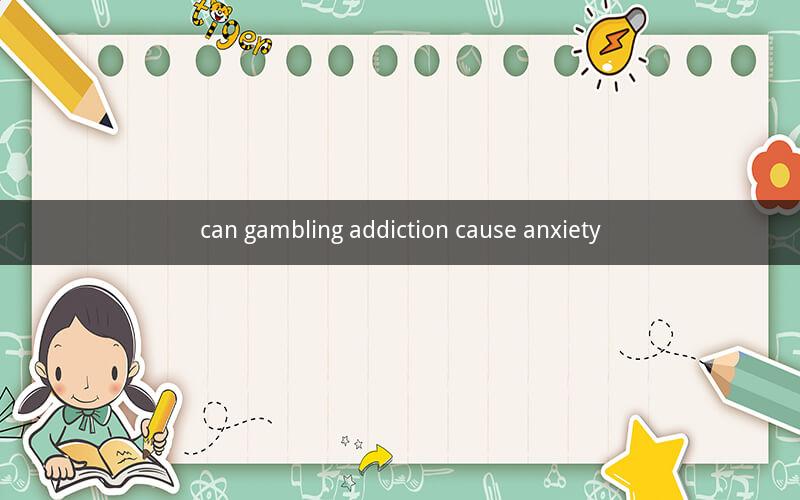
Table of Contents
1. Understanding Gambling Addiction
2. The Connection Between Gambling and Anxiety
3. Symptoms of Gambling-Related Anxiety
4. Causes of Anxiety in Gamblers
5. Psychological Factors Contributing to Anxiety
6. Social and Environmental Influences
7. The Impact of Anxiety on Daily Life
8. Coping Strategies for Anxiety in Gamblers
9. Treatment and Support for Gambling-Related Anxiety
10. Preventive Measures and Future Research
1. Understanding Gambling Addiction
Gambling addiction, also known as problem gambling or pathological gambling, is a behavioral disorder characterized by the inability to control the urge to gamble. This compulsion can lead to significant financial, social, and emotional consequences. Understanding the nature of gambling addiction is crucial in exploring its potential link to anxiety.
2. The Connection Between Gambling and Anxiety
The relationship between gambling and anxiety is complex. While not all gamblers experience anxiety, many do, particularly when they are faced with the potential or actual loss of money. Anxiety can arise from the fear of failure, the stress of debt, and the psychological impact of gambling.
3. Symptoms of Gambling-Related Anxiety
Gambling-related anxiety can manifest in various ways, including:
- Persistent worry about gambling activities
- Inability to control the urge to gamble
- Guilt or remorse after gambling
- Increased tension or irritability when attempting to cut down on gambling
- Difficulty concentrating or sleep disturbances
- Feelings of nervousness or restlessness
- Panic attacks
- Depression
4. Causes of Anxiety in Gamblers
Several factors can contribute to anxiety in gamblers:
- The pressure to win back losses
- The fear of being caught or losing social status
- The psychological distress caused by financial strain
- The physiological effects of stress on the body
5. Psychological Factors Contributing to Anxiety
Psychological factors that may contribute to anxiety in gamblers include:
- Low self-esteem
- Perfectionism
- Depression
- Stress
- Trauma
- Co-occurring mental health disorders
6. Social and Environmental Influences
Social and environmental factors can also play a significant role in the development of gambling-related anxiety:
- Peer pressure
- Availability of gambling opportunities
- Media portrayal of gambling
- Family history of addiction or mental health issues
7. The Impact of Anxiety on Daily Life
Anxiety can severely impact a gambler's daily life, including:
- Work performance
- Relationships
- Financial stability
- Physical health
- Legal issues
8. Coping Strategies for Anxiety in Gamblers
Gamblers struggling with anxiety can employ various coping strategies, such as:
- Seeking support from friends and family
- Engaging in stress-reducing activities
- Practicing mindfulness and relaxation techniques
- Establishing a healthy routine
- Seeking professional help
9. Treatment and Support for Gambling-Related Anxiety
Treatment for gambling-related anxiety often involves a combination of therapy, support groups, and medication. Therapy may include cognitive-behavioral therapy (CBT), which helps individuals identify and change negative thought patterns. Support groups, such as Gamblers Anonymous, provide a community of individuals facing similar challenges.
10. Preventive Measures and Future Research
Preventive measures for gambling-related anxiety include:
- Education about the risks of gambling
- Responsible gambling practices
- Early intervention for those at risk
- Ongoing research to better understand the causes and treatments of gambling-related anxiety
Questions and Answers
1. Q: Can anxiety lead to a gambling addiction?
A: Yes, anxiety can contribute to the development of a gambling addiction, as individuals may turn to gambling as a means to cope with their anxiety.
2. Q: Is it possible to have a gambling addiction without experiencing anxiety?
A: Yes, some individuals with a gambling addiction may not experience significant anxiety, although they may face other challenges related to their gambling behavior.
3. Q: How can someone identify if they have a gambling-related anxiety disorder?
A: Signs of a gambling-related anxiety disorder include persistent worry about gambling, the inability to control gambling behavior, and distressing emotions related to gambling.
4. Q: Can medication help with gambling-related anxiety?
A: Yes, medication can be used to manage symptoms of anxiety associated with gambling, although it is often used in conjunction with therapy and support.
5. Q: Are there any natural remedies for gambling-related anxiety?
A: Yes, natural remedies such as exercise, meditation, and certain dietary changes can help manage anxiety symptoms.
6. Q: How can someone stop a gambling addiction if they also suffer from anxiety?
A: Stopping a gambling addiction with anxiety involves seeking professional help, establishing a support system, and developing healthy coping strategies.
7. Q: Can family therapy help in treating gambling-related anxiety?
A: Yes, family therapy can be beneficial in addressing the impact of gambling-related anxiety on the individual and their family members.
8. Q: Is there a genetic component to gambling-related anxiety?
A: Research suggests that there may be a genetic predisposition to addiction and anxiety disorders, which can increase the risk of developing gambling-related anxiety.
9. Q: Can anxiety lead to suicidal thoughts in a gambler?
A: Yes, anxiety, especially when compounded by the stress of gambling-related issues, can contribute to suicidal thoughts. It is essential for individuals experiencing these thoughts to seek immediate help.
10. Q: How can society address the issue of gambling-related anxiety?
A: Society can address gambling-related anxiety by promoting responsible gambling practices, providing support for individuals struggling with addiction, and increasing awareness about the potential risks of gambling.